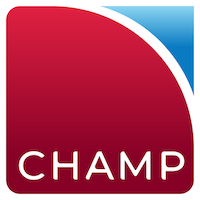Charter carrier JSX asks passengers to help stop FAA review plan
A Texas-based public charter jet service is accusing American Airlines Group Inc. and Southwest Airlines Co. of pressuring federal regulators in an effort to undermine its business model, and is asking the flying public to fight back.
JSX, a charter carrier headquartered in Dallas, said in an email to customers that the broad review of public charter safety standards by the Federal Aviation Administration was triggered “under pressure” from American, Southwest and their labor unions in an effort to stymie competition.
Its message to customers to act “right now” generated nearly 38,000 comments on the docket for the FAA review, a JSX spokesperson said. Another 100,000 clicked on a link to send a support message to members of Congress. Among those supporting the effort: Airbnb Inc. co-founder Joe Gebbia, who posted on X that “JSX airline is under attack.”
The push for changes “is not driven by a bona fide regulatory concern,” JSX Chief Executive Officer Alex Wilcox said Thursday in an interview. “This is pure back room politicking done by competitors out of complete self-interest.” Transportation Department and FAA regulators have declined to meet with JSX officials, he said.
Southwest pushed back against JSX’s accusation, saying the carrier “supports the position of airline industry pilots, flight attendants and air traffic controllers who believe there needs to be one level of safety for anyone flying on a scheduled air carrier.” American had no immediate comment on the JSX concerns.
In its email to passengers, JSX said its business model was at risk - and provided a link with prewritten text to lawmakers.
“If these airlines and labor groups succeed, JSX will be forced out of business,” the email said. “They’re using unsubstantiated allegations about aviation safety to push for our shutdown out of greed.”
Asked about JSX’s claims, the FAA said in an email that it would “thoroughly review all applicable comments we receive.” The Transportation Security Administration, which has also begun a related review, declined to comment.
Fast Growth
Charter flight firms like JSX are growing in popularity with passengers, since they operate from private hangars without crowds and security lines, providing service similar to flying private but without the exorbitant price. Tougher federal safety or security regulations could threaten such businesses.
The FAA’s notice said it is considering safety rule revisions because expansion of such carriers is “an increased risk to safety if left unchecked.” TSA subsequently said it would look at the charter operations from a security risk threat perspective.
There are more than 1,800 charter air companies in the US, according to the US Private Aviation Association. Fifty-three of those offer public charter service, according to the National Air Transportation Association. JSX operates 46 aircraft with 30 seats each and makes an average 80 daily flights.
Sara Nelson, president of the Association of Flight Attendants-CWA, said in statement that it wasn’t a surprise that JSX was scrambling after the TSA said it was investigating.
“The entire premise of their business is to elude TSA security and all of the security measures put in place to keep people safe after 9/11,” she said.
The Air Line Pilots Association agrees that flight security procedures should be uniform. “Airline passengers should be able to board a plane and trust that they have the same level of safety whether they are flying into a big city or a small town,” Jason Ambrosi, the association’s president, said in an email. “Closing the public charter loophole is necessary to ensure that US airlines remain the safest in the world.”
The union has led a push by aviation-industry labor groups to win changes in current regulations, an effort that started with opposition to an effort by SkyWest Inc., the largest US regional airline, to operate a charter carrier under the same standards as JSX.
TSA and others declined to discuss the specifics of security rules governing the charter companies, but they are not as stringent as those required for larger commercial airlines. JSX says it “far exceeds” safety, security and regulatory standards.
Public charter carriers like JSX can use pilots who are older than 65, the required retirement age at larger airlines. The charter companies also don’t require the minimum 1,500 flying hours needed for a commercial pilot and don’t have to follow the same rules for required pilot rest as larger airlines.
“Not once in our nine year operating history has anyone at TSA, FAA or DOT ever raised any concern with the way in which we operate,” Wilcox said.
Similar Stories

Jet set to Mexico City: WestJet’s new non-stop Calgary route set to take off in summer 2025
View Article
TAM Group expands operations in Latin America with new office in Mexico
View ArticleEtihad reports December 2024 traffic stats
Etihad Airways, the national airline of the United Arab Emirates, has released its traffic statistics for December 2024, finishing the year with continued brisk performance.
View Article
Qatar Airways Cargo and Unilode announce a major digitalization partnership
View Article
Royal Air Maroc Cargo boosts efficiency and market share through CHAMP Cargosystems partnership
View Article
EFIS Maroc announces strategic partnership with China Eastern Airlines
View ArticleGet the most up-to-date trending news!
SubscribeIndustry updates and weekly newsletter direct to your inbox!





